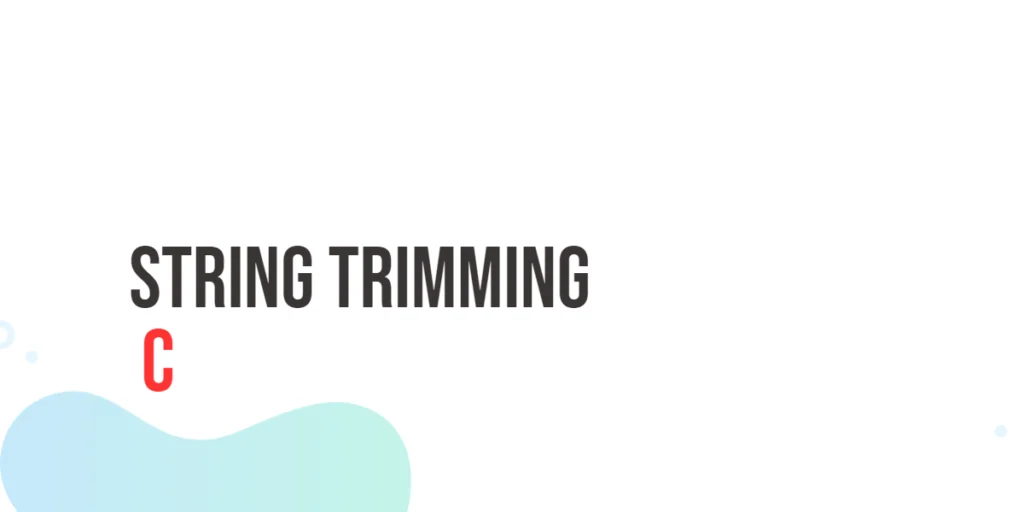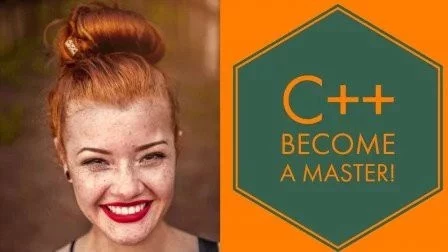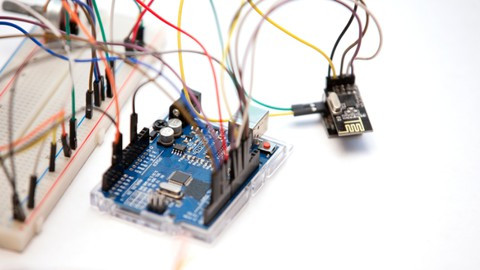String manipulation is a common task in programming, and clean, well-formatted strings contribute to code readability and efficiency. Unnecessary spaces at the start or end of strings can lead to unexpected behavior, especially in applications dealing with user inputs. String trimming addresses this issue by removing unwanted spaces, ensuring that the data processed is accurate and reliable.

with hands-on learning.
get the skills and confidence to land your next move.
What is String Trimming?
String trimming is the process of removing unwanted characters, such as spaces or tabs, from the beginning or end of a string. In C programming, where memory management is crucial, ensuring that your strings are trimmed can lead to more efficient code execution and better overall performance.
Left Trimming in C
Let’s start with left trimming, which involves removing spaces from the beginning of a string. The ltrim function below achieves this:
#include <stdio.h>
#include <string.h>
#include <ctype.h>
void ltrim(char str[]);
int main() {
char str[] = " Hello ";
printf("|%s|\r\n", str);
ltrim(str);
printf("|%s|\r\n", str);
return 0;
}
void ltrim(char str[]) {
int length = strlen(str);
int i = 0;
while (i < length && isspace(str[i])) {
i++;
}
memmove(str, str + i, length - i + 1);
}In this example, the ltrim function iterates through the string, skipping leading spaces. The memmove function is then used to shift the remaining characters to the beginning of the string.
Right Trimming in C
Now, let’s move on to right trimming, where spaces are removed from the end of a string. The rtrim function accomplishes this:
#include <stdio.h>
#include <string.h>
#include <ctype.h>
void rtrim(char str[]);
int main() {
char str[] = " Hello ";
printf("|%s|\r\n", str);
rtrim(str);
printf("|%s|\r\n", str);
return 0;
}
void rtrim(char str[]) {
int length = strlen(str);
int i = length - 1;
while (i >= 0 && isspace(str[i])) {
i--;
}
str[i + 1] = '\0';
}Here, the rtrim function starts from the end of the string, moving backward to find and truncate trailing spaces by adding a null terminator.
General String Trimming in C
For a more comprehensive approach, the trim function combines left and right trimming:
#include <stdio.h>
#include <string.h>
#include <ctype.h>
void trim(char str[]);
int main() {
char str[] = " Hello ";
printf("|%s|\r\n", str);
trim(str);
printf("|%s|\r\n", str);
return 0;
}
void trim(char str[]) {
int length = strlen(str);
// Trim leading spaces
int i = 0;
while (i < length && isspace(str[i])) {
i++;
}
memmove(str, str + i, length - i + 1);
// Trim trailing spaces
length = strlen(str);
i = length - 1;
while (i >= 0 && isspace(str[i])) {
i--;
}
str[i + 1] = '\0';
}This trim function first performs left trimming and then right trimming, resulting in a string with no leading or trailing spaces.
Conclusion
String trimming is a crucial operation in C programming to ensure clean and consistent text processing. The provided code examples for left, right, and general trimming can be incorporated into your programs to enhance the reliability of string manipulation. Remember to adapt these functions as needed for your specific applications. For more content, please subscribe to our newsletter.







